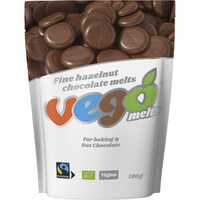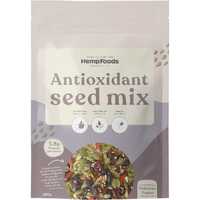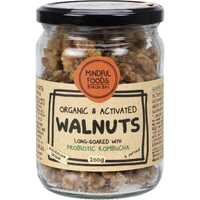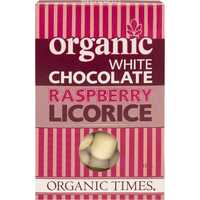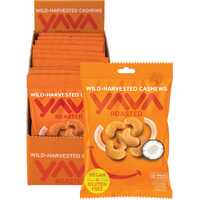When it comes to health and well-being, big changes rarely happen overnight. More often than not, positive results come from making small incremental changes to your daily life. When you switch a few things up and make adjustments as you go, you can start new habits that really stick. Whether it's making new snacking choices, changing your cooking oil, or adding new powerful ingredients to your diet, living a healthy life can be easier than you think.
In this article, we'll look at seven simple yet highly effective ways to improve your diet and transform your life.
1. Discover New Snacks
Unhealthy snacks come in every size, shape, and flavour profile. From chips and french fries to cakes and chocolates, these popular foods often provide little nutritional value. If you want to improve your diet quickly without making huge changes, new snacking habits are a great place to start. This healthy shift often involves simple substitution, and a little planning goes a long way.
Most commercial snacks are full of salts and sugars, and they also feature heavily processed ingredients. Not only are these things bad for you, but they also create addictive cycles that can promote weight gain and disease. With most people snacking at least once per day and many people replacing main meals with snacks, these ingredients can have a major negative impact.
The following snack ideas offer a healthy and delicious alternative:
- If you want something crunchy, try nuts, seeds, and raw vegetable sticks with or without dip.
- If you crave something creamy, avocado, hummus, and cottage cheese taste great with or without crackers.
- For something sweet but healthy, you can chop up fresh fruit or reach for dark chocolate instead.
- For something savoury without all the salt, maybe try roasted chickpeas or delicious nut butters.
2. Make Your Own Cereal
Along with snacks between meals, breakfast is a major contributor to bad diets in the Western world. Due to our busy lifestyles, many people reach for sweet commercial cereals first thing in the morning. While products differ widely in their nutritional value, most of the time, they're not particularly healthy. If you want to start your day strong, you can make your own cereal instead.
To start simple, just add nuts and seeds to a commercial cereal blend. Cashews, almonds, macadamias, and walnuts are among the most popular, with these nuts full of beneficial protein and healthy crunch. If you want to add seeds, sunflower, chia, and hemp are all fantastic choices. If you want dried fruits, raisins, blueberries, and cranberries always go down a treat.
Making your own cereal can be as complex as you like. If you really want to make something special, you could start roasting your own granola or adding heritage grains to the mix. While many people associate cereals with dairy, there are many dairy-free milk alternatives on the market. Rice milk and oat milk taste great with cereal, as do soy milk and almond milk.
3. Explore Ancient Superfoods
If you want to boost your diet without making too many changes, superfoods are perfect for the job. Superfoods pack a lot of punch into a small footprint, which makes them ideal for snacking, drinks, or main meal additions. From shakes and smoothies to stir-fries and cereals, there's a superfood perfect for most situations.
People have access to foods from all over the world in the 21st century, and ancient superfoods have become a modern staple for many health enthusiasts. Popular examples include acai berries, cacao, hemp seeds, chia seeds, goji berries, maca root, chlorella, and spirulina. Each of these foods offers its own unique benefits, including a healthy mixture of fibre, protein, vitamins, and minerals.
4. Choose High-Quality Oils
One of the easiest ways to improve your diet is to change your cooking oil. Products vary widely in their nutritional value, so it's important to choose carefully. Partially hydrogenated oils (PHOs) are particularly bad, with these oils full of unhealthy trans fats. PHOs can be found in many processed commercial foods, especially baked goods. Other poor-quality cooking oils include vegetable oil, palm oil, canola oil, soybean oil, and sunflower oil. These oils release free radicals when they break down, which are responsible for many diseases.
The best cooking oils are capable of withstanding higher temperatures, including olive oil, avocado oil, safflower oil, grapeseed oil, and sesame oil. Coconut oil can also be healthy, but it's best in small doses due to a high concentration of saturated fat. Olive oil is a favourite in kitchens around the world, with extra virgin varieties featuring the highest antioxidant concentration. Olive oil is a big part of what's great about the Mediterranean diet, and it can be used to cook almost everything. Beneficial antioxidants in olive oil include vitamin E, oleacein, and oleocanthal, which help fight free radicals, improve circulation, and promote a healthy gut.
5. Boost Your Nutrition With Supplements
The best way to get healthy is to eat fresh whole foods on a regular basis. This includes fresh fruits and vegetables, whole grains, nuts and seeds, seafood, and animal- or plant-based proteins. This is easier said than done, however, with busy modern schedules making it hard to cook fresh meals every day. If you want to make sure you're getting enough vitamins, minerals, and antioxidants into your diet, supplements can be a great idea.
There are lots of fantastic supplements on the market, including liquid tonics, protein powders, and nutrient tablets. From vitamins and minerals to probiotics and superfoods, adding these products to your diet can give you a real boost. Many people consume supplements on a regular basis to keep their energy levels up, and others use them during stressful periods or to cover gaps in their diet. If you have a busy week coming up or you're recovering from an illness, supplements are a great way to keep your nutritional bases covered.
6. Discover the Wonders of Protein Powder
Protein powders deserve special mention, with these supplements often used to supercharge modern diets. Protein powders have long been consumed by fitness enthusiasts, but they're now enjoyed by people from all walks of life. When taken together with a healthy diet, these powders can help with muscle growth, injury recovery, and weight management. As one of the major building blocks of the body, protein is used to make bone, muscle, and skin. It's also extremely busy behind the scenes, helping the body produce and regulate hormones, enzymes, and other chemicals.
Many people benefit from extra protein, especially vegans, vegetarians, or anyone on a limited meat diet. Along with much-needed protein, many commercial powders are enriched with vitamins and minerals for extra nutritional goodness. While these powders should never replace whole foods in your diet, they can be a powerful addition. There are lots of protein powders on the market, including whey protein, pea protein, hemp protein, rice protein, and casein and milk products. These powders are all easy to consume, with most people adding them to shakes, smoothies, and cereal bowls.
7. Eat Less Meat
If you're a vegan or vegetarian, you can probably skip this section. Instead, you can spend your time researching and tracking down plant-based protein foods and supplements. If you do eat meat, however, changing your dietary habits can have a massive influence on your health. To put it bluntly, one of the best things you can do for yourself and the planet is to eat less meat. While beef, lamb, and pork do provide health benefits, most people in the Western world consume way too much.
Eating red meat, especially processed meat, can raise the risk of numerous diseases, including type 2 diabetes, coronary heart disease, stroke, and certain cancers. While meat is an excellent source of protein, a few small portions a week is all that's required. Processed meats are especially problematic, as they're high in harmful nitrates and sodium. For most people, the best diet is one that focuses on fresh fruits, vegetables, and whole grains, along with poultry, dairy or alternatives, fish, nuts, and seeds.
Meat production also contributes greatly to habitat destruction and the release of greenhouse gases like carbon dioxide and methane. There are also many toxic pesticides used to grow meat, some of which make their way into your food. You don't have to go full vegan or vegetarian to have a positive impact on the world around you; just make different decisions and set up habits that you can sustain on a long-term basis.
If you want to change how you eat, Healthy Being has a huge array of options to choose from. From cooking ingredients to snacks, from protein powders to superfoods, we help you live your best possible life through food!


 Certified Organic
Certified Organic Vegan Friendly
Vegan Friendly  Vegetarian
Vegetarian Organic Ingredients
Organic Ingredients Dairy Free
Dairy Free Gluten Free
Gluten Free Keto Friendly
Keto Friendly


























